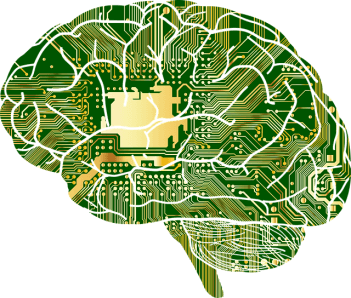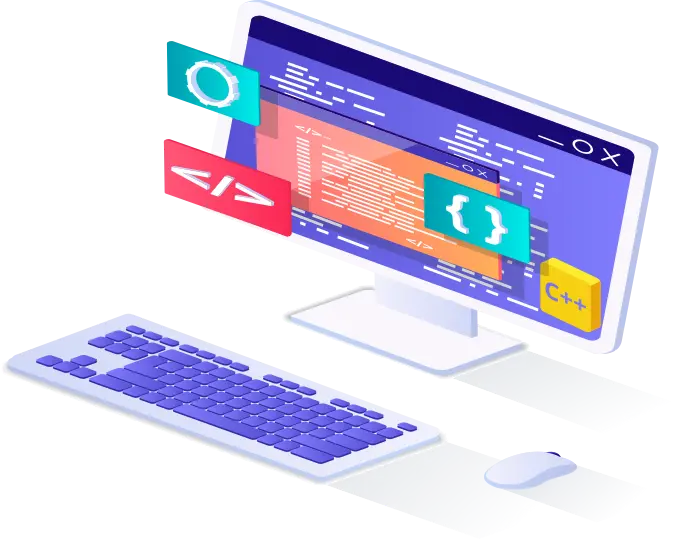Will AI be able to replace software developers entirely in the near future?
Artificial intelligence (AI) technology has made rapid advancements in recent years. One question that is often asked is “Will AI be able to replace software developers entirely in the near future?”
This article explores how AI works, why it’s so powerful, and what this means for software development.
The Impact of AI on Software Development
AI has the potential to automate many of the mundane tasks that software developers currently perform. This includes things like testing, bug fixing and code refactoring. In fact, AI is already being used by many companies including Google and Facebook to do just that–and with great success!
AI can also help developers with more complex tasks by giving them access to more data than ever before. For example, by providing insights into how users interact with products we can see where improvements need made before anything goes live on production servers.
Can AI replace software developers?
Developing software involves a wide range of tasks beyond just writing code. While AI can automate some aspects of software development, it cannot replace software developers entirely. Software development is a complex process that involves creativity, critical thinking, problem-solving, and communication skills, which are essential for designing and building software solutions that meet business requirements and user needs.
AI can assist with certain tasks such as code generation, analysis, testing, debugging and optimization. However, software development also involves decision-making, problem-solving, and creativity, which are not yet fully replicable by AI.
AI can analyze data and make predictions based on patterns, but it cannot generate novel ideas or think outside the box in the same way that humans can.
Additionally, software development involves collaboration and communication with stakeholders, clients, and team members, which require emotional intelligence, empathy, and social skills that AI does not possess.
For these reasons, while AI can enhance certain aspects of software development, it is unlikely to replace software developers entirely. Rather, it is more likely that AI will work alongside developers, automating certain tasks and freeing up developers to focus on more complex and creative aspects of software development.
What new opportunities and challenges might emerge for the field of software development as AI technology continues to evolve?
As AI technology continues to evolve, there are several opportunities and challenges that might emerge for the field of software development. Here are some of them:
AI Opportunities
-
Increased automation: AI technology is capable of automating many aspects of software development, such as code generation, testing, and deployment. This could lead to increased productivity and efficiency, as well as faster development cycles.
-
Enhanced user experiences: AI can help improve user experiences by creating personalized recommendations and natural language interfaces. Using predictive analytics, AI can be used to develop software applications that can learn from user behavior and adapt to their preferences. This can lead to more personalized and engaging user experiences.
-
Improved software quality: With AI-powered tools, developers can better identify and fix bugs and vulnerabilities in their code. AI can help improve software testing by automatically generating test cases, detecting defects, and optimizing testing processes. This could result in more secure and reliable software products.
-
Development of AI-powered tools and frameworks: As AI technology advances, there will be a growing demand for software development tools and frameworks that leverage AI capabilities.
-
New types of software application: AI technology can enable the creation of new types of software applications, including chatbots, virtual assistants, and recommendation engines.
Developers who are skilled in AI development will be able to capitalize on these new opportunities.
AI Challenges
-
Ethical considerations: As AI becomes more prevalent in software development, it raises ethical concerns about bias, privacy, and accountability. Software developers must ensure that the AI-powered applications they develop are ethically sound and do not cause harm to users.
-
Potential job displacement: AI-powered tools and frameworks may automate some aspects of software development, leading to potential job displacement for software developers who work on those tasks.
-
Limited availability of AI talent: As AI technology continues to advance, there is a growing demand for skilled AI professionals. This demand could make it difficult for software development teams to find and retain AI talent.
-
Integration with existing systems: AI systems need to be integrated with existing legacy systems and software development processes, which can be challenging. Because it requires software developers to have a deep understanding of both AI and legacy systems.
-
Cost: Developing and deploying AI systems can be expensive, especially for small and medium-sized businesses. This can create a barrier to entry for some companies.
While AI technology presents many opportunities for software development, it also poses several challenges that need to be addressed to fully realize its potential.
Developers will be required to have a new set of skills and knowledge, which could lead to a skills gap. However, there may be new job opportunities created as a result of the development and implementation of AI technology.
Overall, AI technology presents both exciting opportunities and complex challenges for software development. Developers who are able to embrace AI and adapt to its evolving capabilities will be well-positioned to succeed in the future.
Are there certain types of development work that are more likely to be automated by AI?
Certain types of development work are more likely to be automated by AI than others. Here are some examples:
-
Code generation: AI-powered tools can automate the process of generating code, which is particularly useful for repetitive or routine tasks. For example, boilerplate code or basic database operations. However, more complex programming tasks still require human input.
-
Testing: AI can perform automated testing, such as unit tests and regression tests, and identify potential bugs and errors in the code. It’s important to note that AI-powered testing tools still require human oversight to ensure accuracy.
-
Debugging: AI can help developers developers to identify and fix bugs more efficiently, through techniques such as automated debugging and code analysis. AI can help identify and fix issues in the code by analyzing code changes and identifying their impact on other parts of the system.
-
Natural language processing: AI can be used to develop applications that process and analyze human language, such as chatbots and language translation software.
-
Data analysis: AI is well-suited for data analysis tasks, such as extracting insights from large datasets. This can be particularly useful in applications that require machine learning algorithms. AI can be used to develop applications that analyze large amounts of data, such as machine learning models and recommendation engines.
In general, tasks that are highly repetitive or rule-based are more likely to be automated by AI, while tasks that require human creativity or critical thinking are less likely to be automated. For example, designing user interfaces, developing complex algorithms, and making decisions based on subjective criteria may still require human input and expertise. However, it’s important to note that AI technology is constantly evolving, and the types of development work that can be automated may change in the future.
Conclusion
While AI has the potential to automate many aspects of software development, it is unlikely to completely replace human developers in the near future. Because software development involves a range of skills, including problem-solving, creativity, communication, and project management, which are not yet fully replicable by AI.
Developers will still play a critical role in the software development process by providing creative input, solving complex problems, and making decisions based on their experience and expertise.
AI is a tool, and like any tool, the more skilled the technician, the better the results. Used effectively, AI can greatly enhance your productivity.
Contact us today to schedule a free consultation and start improving your software development process with AI.
Related: How AI Software Development Makes Impressive Results for Business



